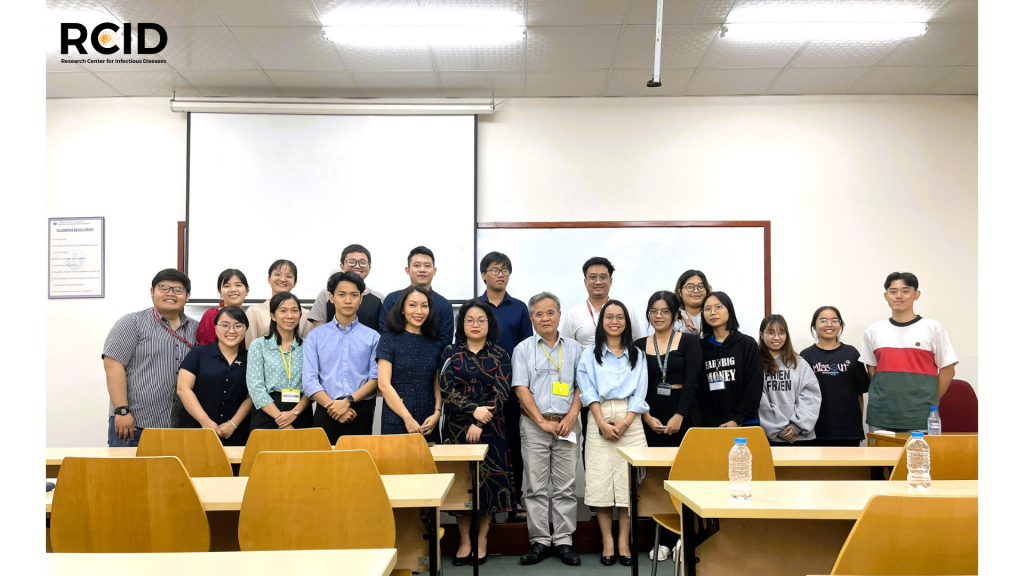Seminar
Remodeling the lymphoma microenvironment by targeting protein tyrosine kinases

Targeting of B cell receptor-associated protein kinases (BCR-BAK) using specific inhibitors such as ibrutinib (Btk inhibitor) or idelalisib (Pi3kɣ inhibitor) have revolutionized the treatment of B-cell malignancies. BAK is an important signaling factor in the BCR signaling pathway and appears to be involved in the pathogenesis of B-cell lymphoma.
During her visit to RCID on December 22, 2023, Dr. Nguyen Phuong Hien shared about the signaling factor BAK, the BCR signaling pathway, and the pathogenesis of B-cell lymphoma. In addition, Dr. Nguyen Phuong Hien also reviewed some research on the role of BAK in the progression of lymphoma, the expression of some BAK in the chronic lymphocytic leukemia TME (CLL-TME) and LYN kinase in the progression of chronic lymphocytic leukemia (CLL). Dr. Nguyen Phuong Hien also proposes new application directions for combination treatment regimens through the remodeling of CLL-TME.
𝐁𝐈𝐎𝐆𝐑𝐀𝐏𝐇𝐘
Phuong H. Nguyen is the Group Leader, Laboratory for Tumor-Host Interactions, Department of Internal Medicine I, University of Cologne. She is also the Group Leader of the Career Advancement Program (CAP-19), Center for Molecular Medicine Cologne, University of Cologne. Dr. Hien received her Ph.D. in Hematology from the University of Cologne in 2014 under the supervision of Professor Michael Hallek. She then conducted postdoctoral research and was a Co-Principal Investigator, Department of Internal Medicine I, Center for Molecular Medicine Cologne, University of Cologne. Her research focuses on the fields of hematology, chronic lymphocytic leukemia research, tumor microenvironment in cancer research, precision medicine, and particularly chronic lymphocytic leukemia (CLL). Dr. Nguyen has made significant contributions to the field of cancer research. Her research has helped to elucidate the role of B cell receptor-associated protein kinases (BCR-BAK) in the tumor microenvironment. These insights could lead to the development of new targeted therapies for CLL.
